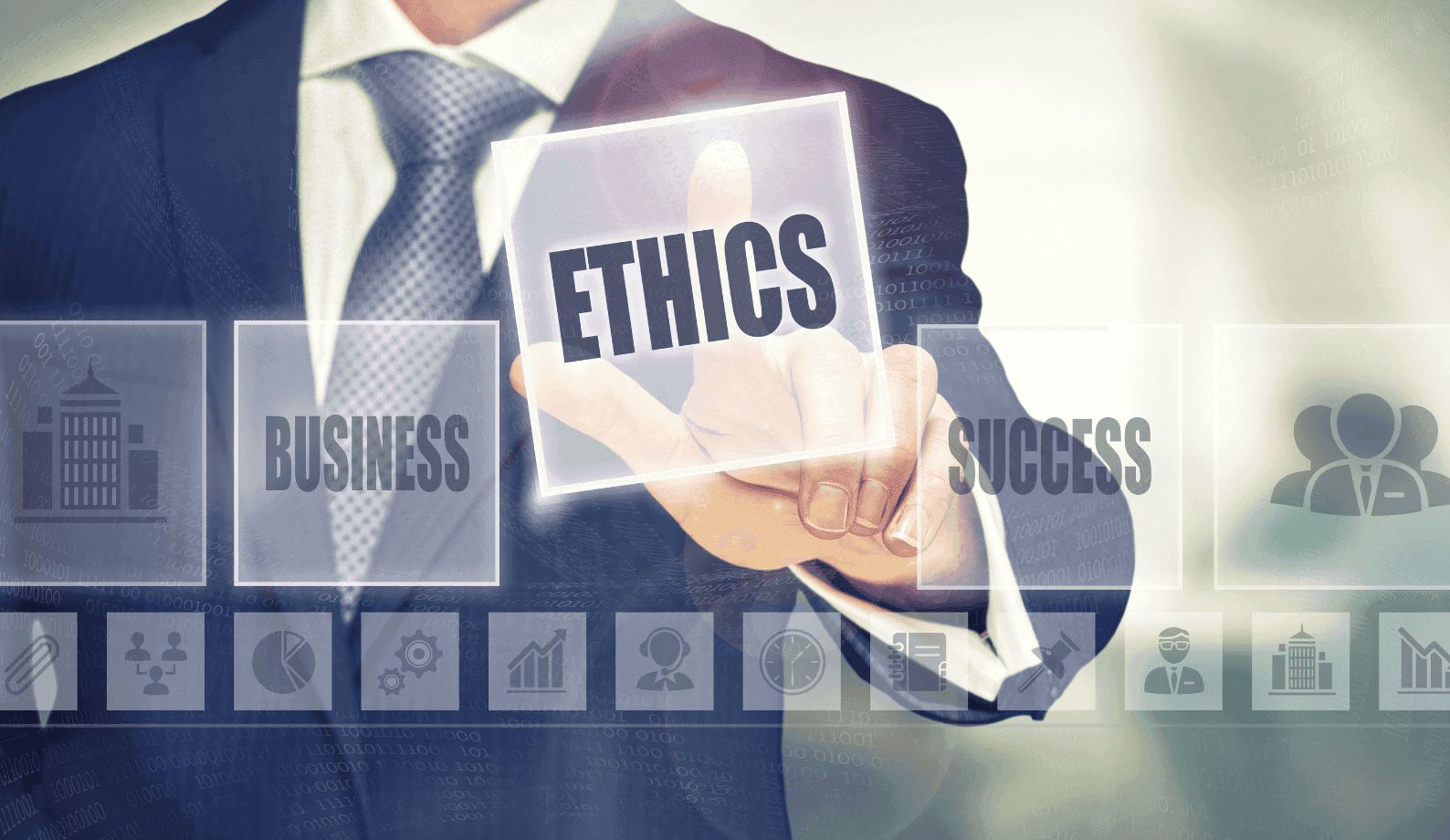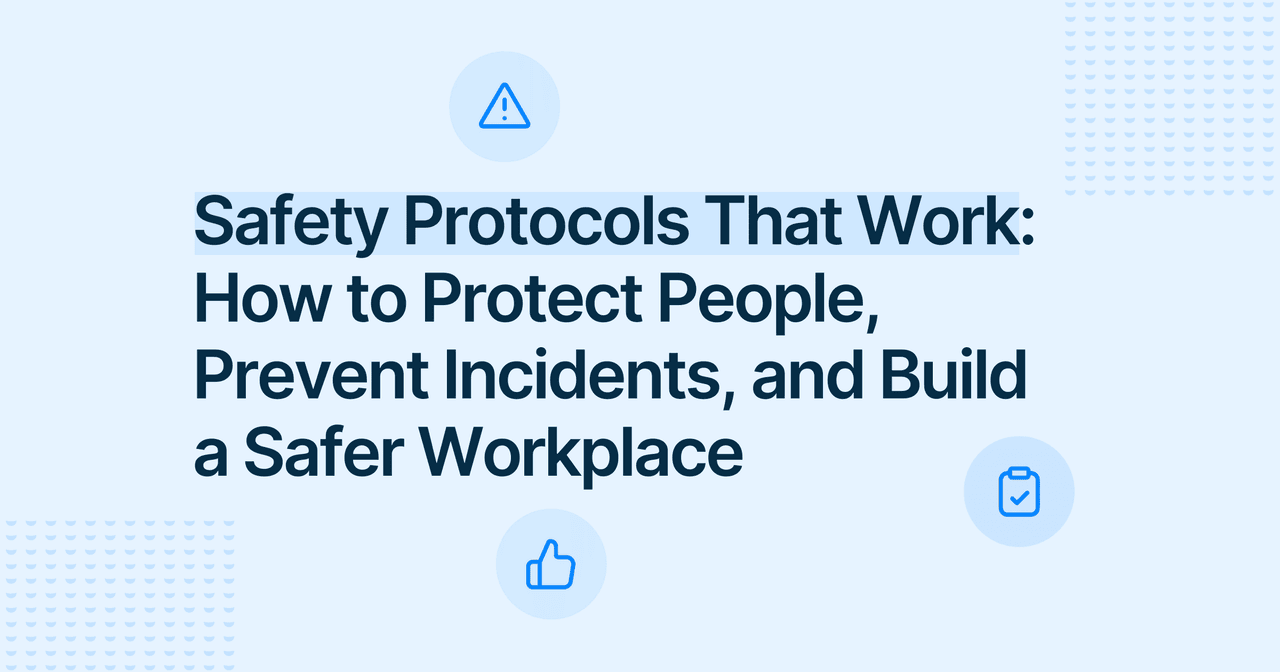




Legal & Compliance

Alaa El-Shaarawi
Copywriter and Content Manager
Published
2025-09-30
Reading time
6 min


Table of contents
Subscribe to our newsletter
A faint whisper around the water cooler grows louder, turning into a roar that shakes your organization’s very foundation.
It might start as a quiet comment about a manager playing favorites, a suspicion of expense fraud, or a rumor of harassment. Left unchecked, even a small ethical issue can mushroom into costly crises that endanger your reputation, trust, and legal standing.
But what if you could stop these problems early, before they spiral out of control? That’s where ethics investigations at work come in.
This is your guide to understanding what an ethics investigation is, why it matters, and how to run an internal investigation. You’ll get a step-by-step look at the ethics investigation process, the roles and responsibilities involved, and best practices for fairness and confidentiality.
We’ll also share practical ways to prevent issues from escalating and protect your workplace culture. By the end, you’ll know how to safeguard your people, your reputation, and your bottom line before unethical behavior turns into major problems.

Human resources and HR professionals often lead workplace ethics issues, but ethics investigations aren't just another item on their to-do list. They’re where trust, accountability, and fairness actually happen.
They tell employees: We see you, we hear you, and we take your concerns seriously.
Yet many organizations still navigate murky waters: roles are unclear, procedures lack consistency, and protecting confidentiality and personal data is an ongoing challenge. This breaks down trust and leaves serious allegations of misconduct poorly addressed.
A strong workplace investigation is about uncovering the truth, whether it involves harassment, fraud, conflicts of interest, or violations of company policy and code of conduct. It means all involved parties are heard, evidence is reviewed fairly, and outcomes are just.
Do it well, and you build workplace culture, protect people, and reduce risk. Do it poorly, and you invite lawsuits, reputational damage, and lasting cynicism.
Running a workplace investigation can seem like navigating a complex labyrinth. Breaking it into structured steps helps clear the path:
Not every complaint warrants a full ethics investigation, but ignoring early signs can be costly. The first step is spotting when a concern crosses the line from rumor to a report-worthy ethical issue.
Deciding whether to launch a formal inquiry takes judgment, awareness, and consistency. Ignore alleged misconduct, and your organization is exposed. Investigate unnecessarily, and you waste time and resources.
Define the scope, timeline, and confidentiality safeguards. Set up the investigation team and communication strategy to avoid confusion and delays. Workflow tools help make responsibilities clear so HR, legal, and compliance know their roles and can act quickly and decisively.
Timing matters. Dragging an ethics investigation out fuels rumors and damages morale. Rushing it risks mistakes, missed evidence, and legal exposure.
Conduct interviews, gather documents, and review digital footprints. Every detail matters: gathering evidence is the backbone of a strong internal investigation. Secure case management stores contact information and sensitive data systematically, reducing errors and protecting confidentiality.
For practical instructions, see our guide on conducting a whistleblowing investigation.
Review all evidence, separating facts from assumptions. Stay neutral, avoid bias, and flag any conflicts of interest. This supports a fair assessment, builds a solid basis for conclusions or disciplinary action, and reinforces trust in the investigation process.
Document every step and clearly summarize findings, conclusions, and recommendations—balancing transparency with confidentiality. Everyone involved, complainant, accused, witnesses, or interviewees, deserves clarity without compromising personal data or the integrity of the investigation.
An investigation isn’t finished until resolutions are in place: disciplinary action, policy updates, or training programs. Following through closes the feedback loop and shows accountability. It signals to employees that misconduct is taken seriously, strengthening workplace culture and trust in the ethics investigation process.
Keep stakeholders informed to maintain confidence, even when some details stay confidential. Limited transparency demonstrates fairness and reassures employees that cases are handled properly.
Many organizations struggle to complete investigations efficiently and thoroughly. Modern whistleblowing platforms like FaceUp streamline workflows, helping teams conduct thorough investigations while maintaining workplace trust and culture.
Ethics investigations rely on coordinated teamwork across HR teams, legal, compliance, and senior leadership. Without clear roles, responsibilities slip through the cracks and investigations stall.
Clear mandates, up-to-date training, and strong support allow your ethics team to act decisively and fairly, avoiding turf wars or finger-pointing when sensitive cases arise.
Running a reliable ethics investigation is complex. Successful organizations rely on key tools and practices to keep the process fair, confidential, and effective.
Employees need to feel safe speaking up: In 2023, 30% witnessed misconduct, and 63% of those who reported it faced retaliation, underscoring the need for secure, confidential whistleblowing channels.
Learn more about corporate whistleblowing and the concerns reported by whistleblowers.
Every step, from report to resolution, is tracked. Dashboards, audit trails, and reminders reduce errors and streamline workflow, keeping HR teams and investigators on track.
Limiting data visibility to essential personnel preserves confidentiality and prevents bias, leaks, or mishandling of sensitive information.
Analytics to spot patterns and trends across cases, helping leaders identify risks early and take proactive action before minor issues escalate.
Align internal investigations with company policy, code of conduct, and regulations to stay compliant and strengthen organizational resilience.
Preventing problems is far cheaper than fixing them after they explode. Leading organizations take proactive measures so workplace investigations remain the exception, not the rule:
In 2025, nearly 50,000 anonymous reports analyzed from 6,500 organizations showed just how critical secure hotlines are for catching misconduct early.
The result: organizations move from reactive firefighting to proactive ethics guardianship, addressing issues early and reinforcing a culture of integrity.
Poorly handled ethics investigations at work carry serious risks: lawsuits, regulatory fines, cultural damage, and low morale. Once reputation is damaged, it’s hard to rebuild.
Balancing confidentiality and fairness takes expertise, clear policies, and the right technology. Modern tools provide secure reporting, centralized case management, analytics, and training to support this.
With the right platform, organizations create workplaces where ethical behavior is expected, concerns are raised safely, and trust is maintained. FaceUp delivers exactly that.
FaceUp brings everything together: secure reporting, case management, analytics, and training, giving HR, compliance, and ethics teams the tools to handle investigations consistently, fairly, and confidently.
No more juggling spreadsheets, emails, and siloed tools. FaceUp protects whistleblowers, resolves cases efficiently, and maintains workplace trust.
With FaceUp, investigations stay fair, transparent, and efficient, letting your organization respond decisively while reinforcing a culture of integrity.
When ethical challenges arise, ask yourself: Are we protecting those who speak up, or making them regret it? Strong ethics investigations are the ultimate measure of organizational integrity.
With FaceUp supporting your ethics processes, you’re not just running investigations. You’re creating a workplace where people trust each other, speak up without fear, and integrity is simply how things get done.
Don’t wait for a crisis. Schedule a FaceUp demo to see how you can prevent issues before they escalate—because prevention always beats cure.





Keep Reading

Alaa El-Shaarawi2026-02-108 min
Legal & Compliance

Alaa El-Shaarawi2026-02-098 min
Workplace Environment

Marie Roland2026-02-033 min
Workplace Environment

Alaa El-Shaarawi2026-02-029 min
Workplace Environment